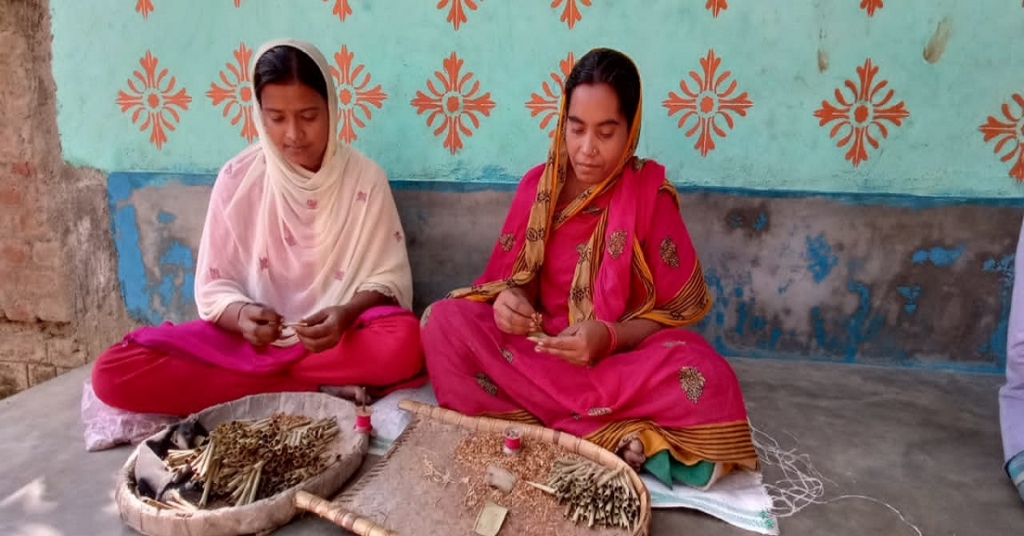Ever since the Covid-19 global pandemic struck and led to the country-wide lockdown that began in March 2020, its negative impact on the Indian economy has been catastrophic. Cottage industries of rural India are the worst affected, families running them having been pushed to the brink of penury!
Those involved with the cottage industry in West Bengal, especially bidi workers, are today amidst extreme financial distress to reduced incomes. Women labourers are the majority of the population who make a living out of rolling and binding thousands of bidis each. The industry mostly employs women labourers as their nimble fingers roll finer bidis.
CJP’s Grassroots Fellowship Program aims at empowering young men and women, from the communities we work closely with, including migrant workers, Dalits, Adivasis, forest workers among other disadvantaged people, to report on issues closest to their hearts and home. Please Donate Now to empower our grassroots fellows.
“I earn around Rs 130 for each batch of 1,000 bidis I make. I have been making bidis for eight years now,” says 25-year-old Sabina Khatun of Birbhum district, whose village falls under the jurisdiction of the Muraiya Police Station. She and 35-year-old Fulkesh Bibi are among the many who have been affected directly by this reduction of pay.
These labourers sweat it out at bidi factories to make ends meet. Their meagre incomes barely ensure two square meals for their families and help pay for their children’s education. However, the lockdown led to a pause in their work and income. Although work has commenced once again, the pay has been reduced.
“We have to still put in the same amount of time and effort to bind 1,000 bidis like we did earlier. But the reduced pay barely does justice to all the slogging. The pandemic and the lockdown have wreaked havoc in the lives of people like us who work in cottage industries. We would like to request the Government to spare us a thought and do the needful,” they say.
“There was no work during the lockdown. We got paid even less after the lockdown lifted a bit. We are dependent only on this income, and survive, raise our families, educate our children all on this income. What do we do, we have to adjust,” added Fulkesh who has been making bidis for nearly 15 years.
Conclusion
The bidi industry is the only source of income for many impoverished families and unlettered people, especially women. Instead of cutting pay, the government should encourage, and if required intervene to ensure that workers are paid fair wages.
Watch the Video here:
This report is part of CJP’s Grassroots Fellowship Program, and has been written by Mohammed Ripon Sheikh, who hails from Birbhum district. Here Sheikh showcases how the Covid-19 pandemic has brought the lives of bidi workers to a virtual standstill.
Meet CJP Grassroot Fellow Mohammed Ripon Sheikh
This young man, who has graduated with a B.Sc degree from the Burdwan University, loves trivia. Sheikh’s passion to research and seek “unknown information about World History” has earned him many medals and trophies at various University and state-level Quiz championships, and youth festivals. Sheikh is a born orator and a natural community leader. He has the potential to represent his community, state and country at a global level one day. His immediate goal, however, is to find a job so he can support his parents.

